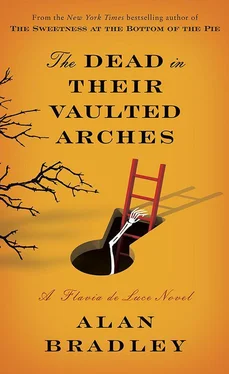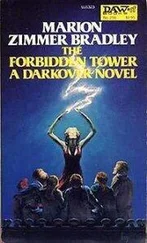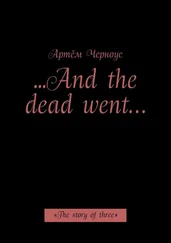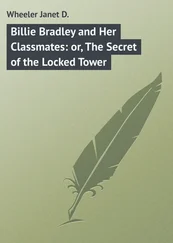As if I hadn’t heard, I sank to my knees on the carved prie-dieu that had been provided for those who might wish to offer their prayers for the repose of Harriet’s soul. I hoped that it would look as if I had been there all along.
“What are you doing?” she repeated.
“Praying for my mother,” I said, after a long-enough pause.
I crossed myself and got to my feet. “What is it, Lena?” I asked. “What’s the matter?”
One way of getting an immediate upper hand in a pinch is, as I have mentioned, to make use of an adult’s name.
“You frightened me,” I added.
Another way is to squeeze in an accusation—even a veiled one—before the other person has a chance to say a word.
“I thought I smelled smoke,” she said. “It seemed to be coming from here.”
“It’s the candles,” I said immediately. “They’re awfully hot—and there are so many of them. With these heavy hangings—” I waved my hand vaguely. “And with all the windows shut—”
“I suppose,” she said, sounding somewhat skeptical, but having a good look round the room nevertheless.
From where we stood near the door, everything appeared to be in order, every detail as it had been before I began.
It was at that instant that my supersensitive hearing registered a new sound in the room.
Drip .
Drip .
It was agonizingly slow, but as evident to my ears as a series of cannon shots.
Surely Lena must be able to hear it.
“So everything is all right, then?” she asked.
I gave her a sad nod.
“Very well,” she said, but she made no move to leave. Rather, she looked slowly round the room as if satisfying herself that no stranger’s ears were listening, although there might have been armies of eavesdroppers lurking behind the vast black velvet hangings.
“You will recall that I told you I was going to confide in you, Flavia. That I was going to seek your assistance. We were interrupted when that dreadful man terrified us with his aeroplane.”
“Tristram Tallis,” I said.
“Yes.”
Drip!
Drip!
I knew at once where the sound was coming from. The card ice was melting and drops of water were falling to the oaken floor of Harriet’s boudoir.
“I told you, did I not, that Undine requires a very particular kind of handling.”
“Yes,” I said.
“A very special kind of handling.”
The candles closest to her face guttered in the peculiar hissing of her voice. A reflection danced on the floor: the merest flash of light under the catafalque.
It was water! Harriet’s coffin was leaking!
I needed to get Lena out of here as quickly as possible.
“Undine likes you,” she said. “She thinks you’re keen. That was her own word: keen. You’re very good with her.”
I smiled indulgently.
“We need to talk. Not here, but somewhere where we can speak frankly without fear of interruption. Do you know the Jack O’Lantern?”
I did indeed. It was a skull-like outcropping of rock to the east of Buckshaw that overlooked the Palings, that somewhat sinister grove at a bend in the river Efon, which marked the eastern boundary of our estate. Gladys and I had ridden there on many occasions, most recently to consult with Father’s old headmaster, Dr. Isaac Kissing, who was a resident of Rook’s End, a nearby private institution.
“Yes,” I said. “I’ve heard of it.”
“It’s at the end of Pooker’s Lane,” she said. “Do you know where that is?”
I nodded.
“Excellent. We shall go there tomorrow afternoon at half-three. We shall have a lovely picnic.”
“After the funeral?” I asked.
“After the funeral. I shall have Mrs. Mullet put up a hamper and we shall make a day of it.”
“All right,” I said, anxious to get rid of the woman. At that point, I think I would have agreed to anything.
I flung open the door to speed her departure.
“Dogger!” I said. “I’m sorry! I didn’t know you were there.”
We had almost collided in the doorway.
“It’s all right, Miss Flavia,” he said. “No harm done. Mrs. Mullet wanted me to tell you that she’s bringing up some cold meats. She has somehow formed the opinion that you haven’t eaten today.”
Lovely. Just what I needed: a nice bit of brawn to tide me over my long night’s work!
“Please thank her, Dogger, but I had something in the village this afternoon. I couldn’t manage another bite.”
I think it was the first time in my life I had ever lied to Dogger, and I think he knew it, too.
“Very well,” he said, turning away.
“If you don’t want them, then I shall eat them,” Lena said. I’d almost forgotten she was there.
Dogger nodded but said nothing. He watched as she walked away towards the stairs and the kitchen.
Poor Mrs. Mullet , I thought. Usually, by this time of day, she was safely home at her own hearth with Alf. She must have stayed past her time to see to the funeral meats and so forth. I must remember to take her aside later , I thought, and express my gratitude .
There was so much to be grateful for, when you stopped to think of it, in spite of all our hardships.
Dogger, for instance. This was the first time I had been alone with him since Aunt Felicity had told me his story.
How could I ever begin to thank him? How could I ever begin to make it up for what he had endured?
What can one possibly say to a person who, in saving one’s father’s life, has been made to endure the tortures of the damned?
I wanted to hug him, but of course I couldn’t. It simply wouldn’t do.
We stood there together for a few moments. I was the first to speak.
“God bless you, Dogger,” I said at last.
“God bless you, too, Miss Flavia,” he said.
“I’m sorry, Dogger,” I admitted. “I didn’t actually have anything to eat. But I’m not hungry. Honestly.”
“I understand,” he said with rather a sad smile. “I shall leave you to your task.”
Only after he was gone did I think about what he had said.
EIGHTEEN
THE EVENING WAS WEARING on and I had much to do. I turned the key in the lock, removed the pall from Harriet’s coffin, and was preparing to lift the wooden lid when there was another knock at the door.
I’m afraid I let slip a word which was not entirely suitable to the occasion.
Well, I thought, at least I hadn’t gone too far with my experiment. Better to be interrupted sooner than later.
I replaced the pall, turned the key, and opened the door.
There stood Father.
He looked dreadful—as pale as if Death itself were standing in the doorway.
I had thought he was in bed, sedated. Whatever could be so important as to cause him to arise? Or had he been awake all along?
Behind him, in the hall, were two of the men I had seen on the station platform. They were not wearing their bowler hats, nor were they carrying their umbrellas, but I recognized them at once.
“This is my daughter Flavia—” Father began, but before he could finish, one of the two had brushed past both of us and into the boudoir. The taller one remained outside in the hall. I could now see that he was carrying a black bag somewhat like Dr. Darby’s, but considerably larger.
I realized with a shock that I had seen his face before—and not just at the station. He had been pictured in the illustrated papers arriving in a trench coat at an old stone mortuary at the time of the Swindon Suitcase Murders.
Now, here he was at Buckshaw: Sir Peregrine Darwin, the legendary Home Office pathologist, with his famous head of wild white hair and all. I could hardly believe it. What on earth could have brought him all the way down from London?
Читать дальше












